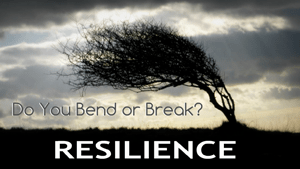
Traumatic experiences come to all of us in this life, some deeply personal and some collective.
When one of the Precious Jewels was 9-years-old, his arm was trapped under an overturned minivan in the most ordinary of circumstances, coming home in a car pool from his elementary school. His injuries were serious but not life threatening. His mother, however, was changed forever.
I learned that our lives could change forever in a single second and that I must hold every moment dear.
Parisians and the rest of us learned that lesson anew in last month’s deadly terrorists’ attacks on that city’s leisure venues. As difficult as it is to contemplate, experts are warning that we have entered a new age of terrorism and that there is likely more to come. Americans have been cautioned about international travel, and most of us are heeding that advice.
We are unsettled, on edge, even traumatized as we wait for the next unknown in this new world. Our own community with its long and deep military connections knows this reality well. Military men and women and the families who love them understand trauma in ways most Americans cannot.
New York Times columnist David Brooks ponders the violence of our current world as well, and he sees a more hopeful and brighter side than many of us do. Not a Pollyanna, Brooks has no illusions about what we are facing. Instead, he finds positive aspects of the traumatic experiences human beings endure.
We have developed many euphemisms for the phenomenon Brooks addresses in a recent column entitled “Tales of the Super Survivors.” Among them, “the glass half full,” “making lemonade out of lemons,” “looking on the sunny side,” and others our mothers and grandmothers spouted on a regular basis. The current language for this involves the word “resilience,” and there is academic research backing this concept.
Brooks posits that the percentage of people who suffer post-traumatic stress disorder, PTSD, is lower than many of us think and that there is an almost opposite experience as well called post-traumatic growth. Research at the Centers for Disease Control, the University of North Carolina at Charlotte, and elsewhere indicates that about three quarters of people who experience a violent or life-threatening event do not go on to develop a stress disorder, though many do report feeling changed in some way. Some say that while they would have preferred not to have had their traumatic experience, they found that their lives opened up more, their relationships improved and that they felt stronger and more satisfied than before
their experience.
Our United States military believes in resilience.
Since 2008, Congress has poured millions of dollars into a resilience training program called Comprehensive Soldier Fitness, intended to address psychological health, particularly for Army personnel who experience combat deployments. Hard results are unknown at this point, but it does seem clear that trauma does not simply “make or break” a person. It seems more likely that the effects of experiencing trauma remain and that while some people do get stuck in and are shattered by its negative effects, many are able to grow from the experience and move forward in their lives. They have been forced to confront life’s most basic yet profound issues of safety, of their own talents, qualities and futures, of control, of what they can live with and what they cannot. At some level, they have accepted their traumatic experience and decided to keep going.
Researchers do not and may never know whether an optimistic outlook on life leads to resilience or whether resilience leads to an optimistic outlook, but they do know that post-traumatic growth occurs in many cultures and after situations ranging from combat, to natural disasters, to illnesses, and, now, to terrorist attacks.
Brooks writes that nations may well react to our new age of terrorism much the same way many people react to personal traumatic experiences. He finds it “interesting that this age of terrorism calls forth certain practical skills — the ability to tell stories, the ability to philosophize and define a meaning to your life. Just as individuals need moral stories if they are going to recover, so probably do nations.
The good news is there is no reason to be pessimistic during the war on terrorism. Individuals and societies are tough and resilient, and usually emerge from attacks better than before.”
Maybe it is true that what does not kill us makes us stronger.